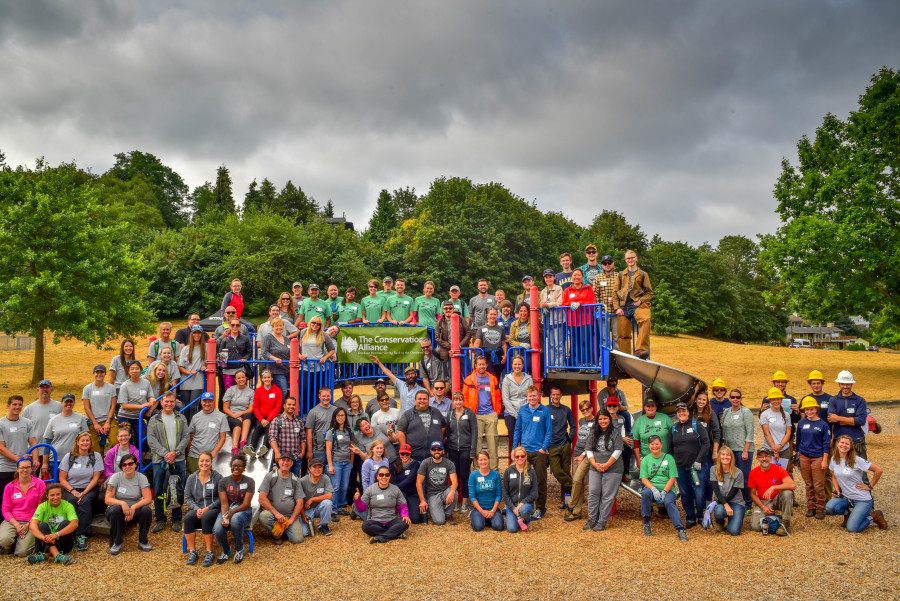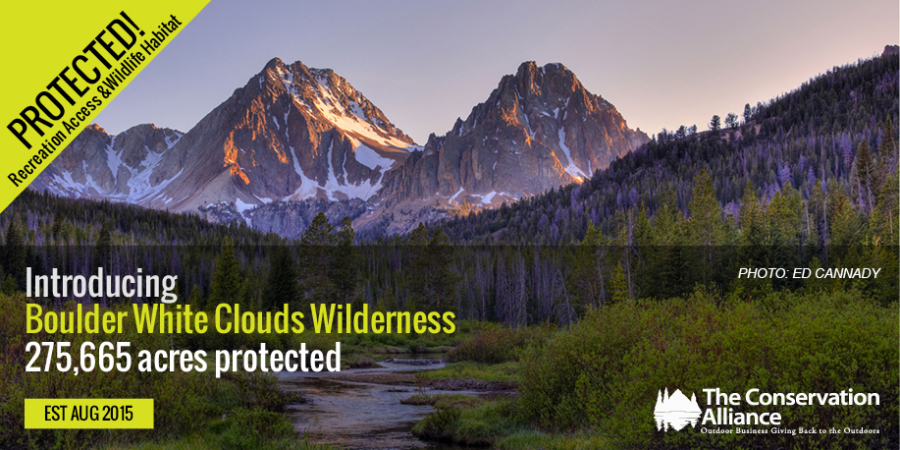If outdoor recreation is a big part of your life, you likely spend a lot of time on public lands. For many of us, lands managed by the National Park Service, Forest Service, and Bureau of Land Management are the setting for the most important moments in our lives.
I grew up backpacking in the Three Sisters Wilderness, and spent much of my 20s and 30s climbing in Joshua Tree and Yosemite, and skiing and hiking throughout the Sierra Nevada backcountry. My wife and I got engaged in Tuolumne Meadows, and honeymooned on the Colorado River through Grand Canyon. During a job change, we spent two months monitoring wolves in Yellowstone. We settled down in Bend, Oregon where I spend much of my free time running, biking, or skiing on Forest Service land. We recently spent a magical spring break with our young kids in Grand Staircase-Escalante National Monument. To say that I enjoy public lands is a vast understatement. I have learned more about myself and the natural world from these experiences than any other teacher.
It is easy for us to take our public lands for granted. They’ve always been there, and presumably, they always will be there. And, because of the consistent management that federal oversight provides, we can find similar experiences in a California Wilderness area as we would in Wilderness in Colorado. We know we can camp under the stars on nearly any acre of BLM land nationwide. These lands belong to all of us; one of the great privileges of being an American.
But today, there is a misguided movement in state legislatures across the country to transfer our federal lands to the states in which they lie. Utah passed such a bill in 2012, demanding that the federal government grant control of 20 million acres of BLM and Forest Service lands to the state. Though this notion is likely unconstitutional, the trend is troubling. It shakes the foundation of our understanding of our common natural heritage. Imagine if the icons of our public lands were no longer “ours”. What if a state could not afford to manage those lands, and sold them off to extractive industries? It seems inconceivable, but many states are taking steps down that road.
The outdoor industry has awoken to this threat. A growing coalition of outdoor businesses, recreation and recreation user groups has come together to stand up for our federal lands. The Conservation Alliance is proud to partner with our peers in raising awareness about this threat, and telling our elected officials to stand strong in the belief that federal lands are best managed by the federal government, not individual states with their unpredictable budgets and perspectives on the best use of those lands. Learn more at http://www.protectourpublicland.org/.
SIGN THIS PETITION TODAY TO PROTECT OUR PUBLIC LANDS
Those of us who love our public lands need to respond to this threat just as we would respond to attempts to take away our freedom of speech or the right to practice whatever religion we choose. Our federal lands represent our freedom to roam, play, contemplate, mourn, and celebrate in a setting that is wild, natural, and free.




